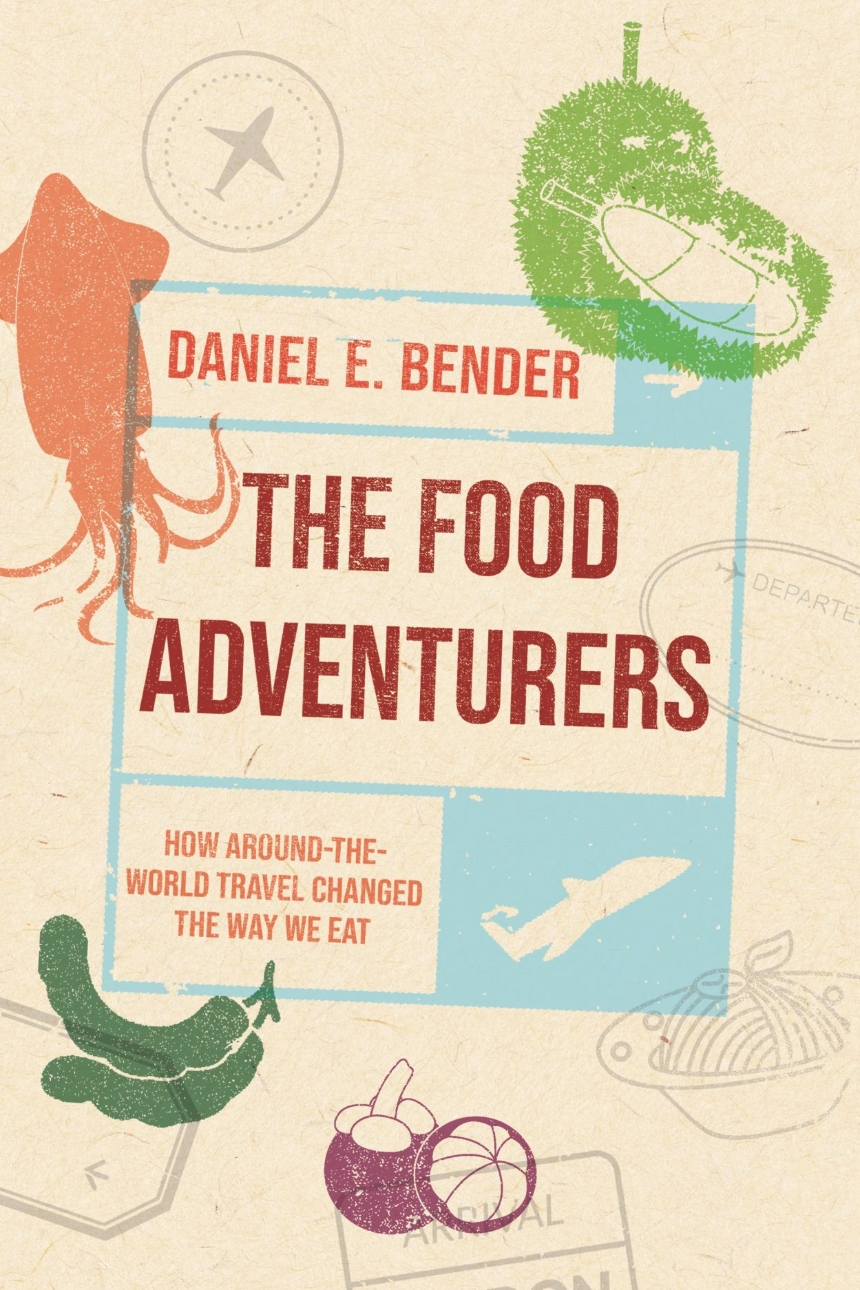9781789147575
Distributed for Reaktion Books
The Food Adventurers
How Around-the-World Travel Changed the Way We Eat
A delectable gastronomic expedition into the linked histories of global travel and global cuisine.
From mangosteen fruit discovered in a colonial Indonesian marketplace to caviar served on the high seas in a cruise liner’s luxurious dining saloon, The Food Adventurers narrates the history of eating on the most coveted of tourist journeys: the around-the-world adventure. The book looks at what tourists ate on these adventures, as well as what they avoided, and what kinds of meals they described in diaries, photographs, and postcards. Daniel E. Bender shows how circumglobal travel shaped popular fascination with world cuisines while leading readers on a culinary tour from Tahitian roast pig in the 1840s, to the dining saloon of the luxury Cunard steamer Franconia in the 1920s, to InterContinental and Hilton hotel restaurants in the 1960s and ’70s.
From mangosteen fruit discovered in a colonial Indonesian marketplace to caviar served on the high seas in a cruise liner’s luxurious dining saloon, The Food Adventurers narrates the history of eating on the most coveted of tourist journeys: the around-the-world adventure. The book looks at what tourists ate on these adventures, as well as what they avoided, and what kinds of meals they described in diaries, photographs, and postcards. Daniel E. Bender shows how circumglobal travel shaped popular fascination with world cuisines while leading readers on a culinary tour from Tahitian roast pig in the 1840s, to the dining saloon of the luxury Cunard steamer Franconia in the 1920s, to InterContinental and Hilton hotel restaurants in the 1960s and ’70s.
Reviews
Table of Contents
Introduction: Eating Apart
Part I: From Sail to Steam, 1840–1900
Chapter 1: Ida Pfeiffer
Chapter 2: Comte de Beauvoir
Part II: The Golden Age of Steam, 1900–1945
Itinerary: SS Cleveland
Chapter 3: Water
Chapter 4: Harry Franck
Chapter 5: Durian
Chapter 6: Edith James
Chapter 7: Mangosteen
Chapter 8: Juanita Harrison
Chapter 9: The Rice Table
Part III: Aeroplanes and the Age of Mass Tourism, 1945–75
Itinerary: Pan Am
Chapter 10: Myra Waldo
Chapter 11: InterContinental
Chapter 12: Hilton and Trader Vic
Conclusion
References
Further Reading
Acknowledgements
Photo Acknowledgements
Index
Part I: From Sail to Steam, 1840–1900
Chapter 1: Ida Pfeiffer
Chapter 2: Comte de Beauvoir
Part II: The Golden Age of Steam, 1900–1945
Itinerary: SS Cleveland
Chapter 3: Water
Chapter 4: Harry Franck
Chapter 5: Durian
Chapter 6: Edith James
Chapter 7: Mangosteen
Chapter 8: Juanita Harrison
Chapter 9: The Rice Table
Part III: Aeroplanes and the Age of Mass Tourism, 1945–75
Itinerary: Pan Am
Chapter 10: Myra Waldo
Chapter 11: InterContinental
Chapter 12: Hilton and Trader Vic
Conclusion
References
Further Reading
Acknowledgements
Photo Acknowledgements
Index

